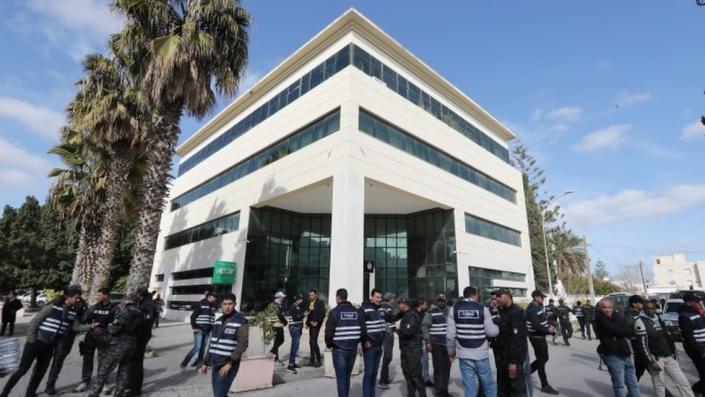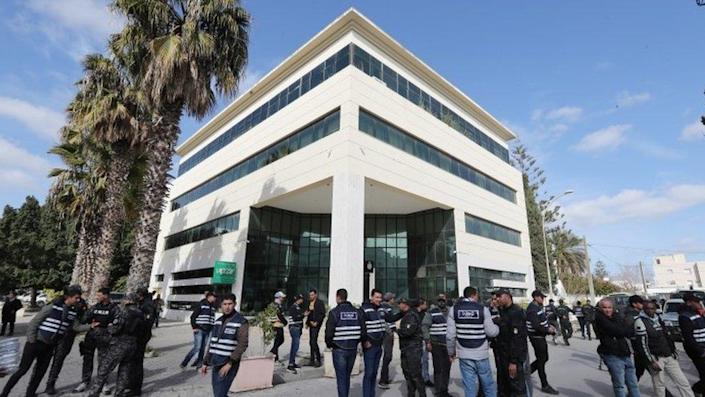
Tunisia was thrown into further political turmoil on Sunday, after President Kais Saied said he was dissolving the country’s main legal body.
It is the latest in a series of moves which critics say are leading the country towards authoritarian rule.
But the head of the Supreme Judicial Council called the move illegal and said it would continue working.
The president accuses the judges of bias and corruption.
“Their place is not where they sit now, but where the accused stand,” Mr Saied said of the council members in his speech announcing the decision.
But the council said there was no legal framework to dissolve it.
Its members vowed to continue holding their seats on the independent body, which was set up in 2016 to guarantee the judiciary’s independence.
“Judges will not stay silent,” warned the council head, Youssef Bouzakher.
President Saied began strengthening his grip on power in July last year, when he ousted the prime minister and froze parliament. He later moved to rule by decree and has promised to rewrite the constitution.
Supporters of the president have welcomed his moves to rid the country of a system they see as corrupt.
But his political opponents accuse him of moving towards authoritarianism and the speaker of the suspended parliament voiced solidarity with the judges.
Tunisia’s 2011 uprising against the autocratic leader Zine al-Abidine Ben Ali was the first in a series of revolutions which became known as the Arab Spring.




